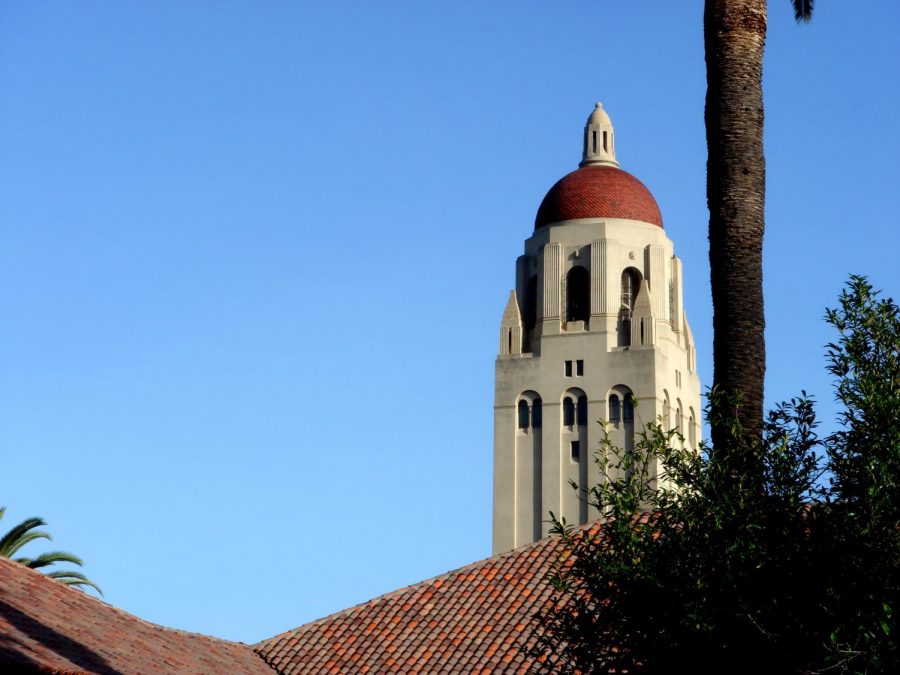Crazy rich Bay Areans
Fortune really favors the bold in college admissions
The Catalyst / Not Quite a Photographr / Flickr Creative Commons
Getting into college is expensive. Last September, the Catalyst surveyed how much NDB seniors spend on their college applications. Some of them spent upwards of several thousand dollars between private college counselors, standardized test fees and/or tutoring, and college application fees. In the wake of recent news about the college admission scandal involving wealthy families, including several from the Bay Area, breaking the law in order to get their children admitted into top schools, students are questioning the line between obviously unethical behavior and privilege and strategy.
While the charges brought against them involve some serious allegations, such as bribing college officials and cheating on standardized tests, it is no secret that wealthy families have an edge when it comes to getting into college. It is a for-(personal) profit system, and, with the competitiveness of getting into certain schools, it has led to an immensely toxic culture.
There has always been a class and wealth divide in the college application process. For example, some schools “superscore” tests. That means, if an applicant takes the ACT or SAT more than once, the school looks at his or her highest score only. This puts the applicant who can afford the roughly $50 to take it once at a disadvantage. In addition, college application fees cost an average of $50 with some schools charging $75 or even more. Wealthy families can afford to pay for applications to 25 colleges, but middle class and low-income families cannot, forcing them to pick and choose and take a chance with applying to much less. Most NDB students apply to about fifteen schools, spending about $900 on apps alone.
However, while adults across America were expressing shock at the scandal, some high school students just shrugged. Many of them expressed surprise that what happened is illegal since they were under the assumption that, that was just how rich people’s kids got into school While the FBI investigation noted that what happened went beyond things like “buying a building” to help one’s chances to get into college, the fact that some actions are accepted and legal is discouraging to students.
For many hard-working students, the college application process begins on their first day of high school, creating an identity that takes honors and AP classes, that gets involved in clubs, service, or sports. They build their high school experience on activities that will look good for college or provide fodder for college essays, participating in as many opportunities that they can (barely) handle. Many students argue that the college application process is too competitive to start with and the fact that wealthy families can buy their kids’ way into college only contributes to the anxiety and stress that many students already feel.
Out of the fifty people charged in the scandal, nearly a third were from the Bay Area ― An area known for its high cost of living, new money from innovation and technology, and even two of the best universities in the world: U.C. Berkeley and Stanford. Incidentally, both schools are now named in the scandal.
For an average or even slightly above average student who is competing against valedictorians and other high achievers of the high school world for a spot at their dream school, what hope is there when children from wealthy families are thrown into the mix? Why bother working hard in classes and extracurriculars and staying up past midnight working on that paper if someone can just open their wallet and buy your spot at a college that you’d give your right arm to attend?
For many students, the four years spent in high school are for the college admission. High schoolers today are stretched thin, and it is disappointing that some of them can bypass the hard work that millions across the U.S. put in. For Bay Area students who are already growing up in an extremely privileged and academically competitive culture, the scandal hits close to home. If nothing else, the college admission scandal is reflective of broader issues not just in the college admissions process, but also in our society; of the privileges that the wealthy have and the fact that no matter how hard one works, money can always work harder.

Johana Ligtenberg is a current senior and member of the Titan class of 2019. As the Editor-in-Chief, Johana Ligtenberg oversees all department editors...





